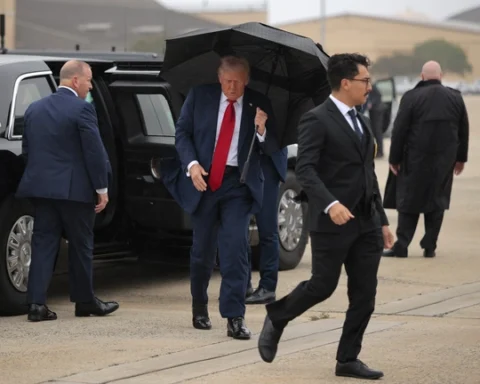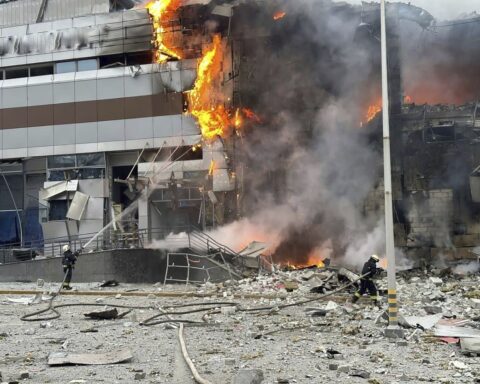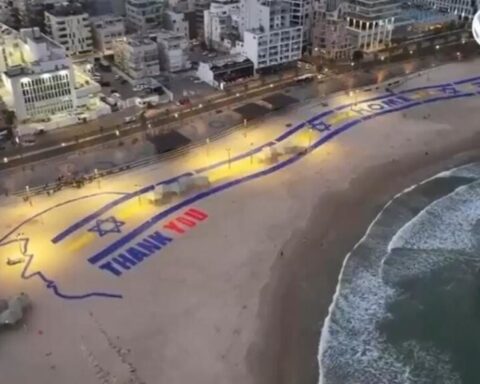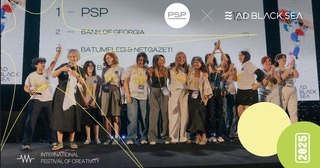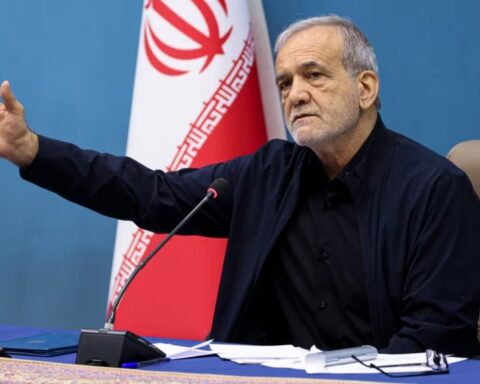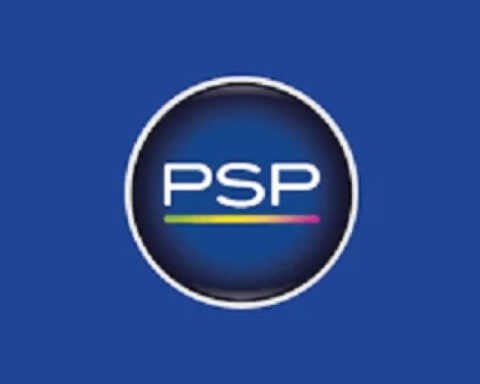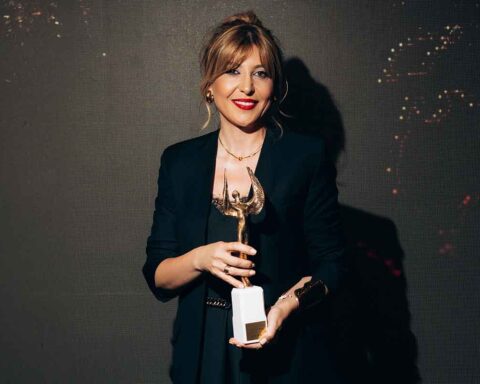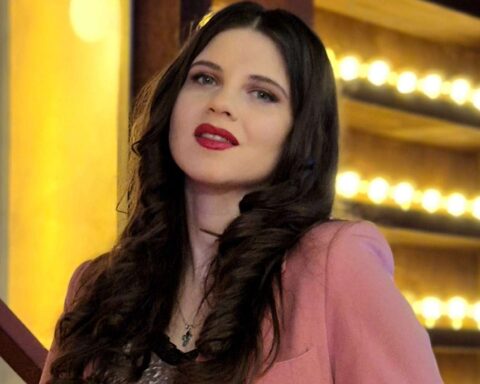World leaders facing International Criminal Court (ICC) warrants are casting a wary eye at The Hague as former Philippine President Rodrigo Duterte languishes in custody, a stark reminder that even the powerful can face justice.
Arrested in March 2025 for alleged crimes against humanity tied to his brutal “war on drugs,” Duterte’s swift extradition to the Netherlands has jolted the international stage, spotlighting the ICC’s reach and raising questions about accountability for other accused figures like Russia’s Vladimir Putin and Israel’s Benjamin Netanyahu.
While some hail it as a triumph for human rights, others see it as a politically charged move, intensifying the debate over the court’s role in a fractured global order. As Duterte awaits trial, his case reverberates, forcing wanted leaders to reassess their own vulnerabilities.
The dramatic turn of events crystallized on April 7, 2025, when news of Duterte’s ongoing detention dominated headlines, six weeks after his arrest on March 11 at Manila’s main airport. The 79-year-old, once dubbed “The Punisher” for his unapologetic anti-drug campaign, was apprehended upon returning from Hong Kong and flown to The Hague within hours.
The ICC charges him with murder as a crime against humanity, linked to thousands of extrajudicial killings between 2011 and 2019—spanning his time as Davao mayor and Philippine president. His detention, the first of an Asian ex-leader at the ICC, has sent shockwaves through capitals worldwide, amplifying both hope and unease among leaders under similar scrutiny.
The Fall of a Strongman
Duterte’s arrest marked a stunning reversal for a man who once seemed untouchable. Elected in 2016 on a promise to eradicate drugs, he oversaw a campaign that left over 6,000 dead by official counts—though human rights groups estimate up to 30,000, many from impoverished communities. Rights organizations like Amnesty International hailed his detention as “monumental,” a long-overdue step for victims’ families.
“This shows no one is above the law,” said Jerrie Abella of Amnesty, reflecting a sentiment echoed by activists in Manila, where relatives of the slain gathered to watch his initial ICC hearing via video link on March 14.
Yet Duterte’s camp decries the move as illegal, arguing the Philippines’ 2019 withdrawal from the ICC nullifies its jurisdiction. His lawyer, Salvador Medialdea, called it “pure and simple kidnapping” in court, pointing to political score-settling by President Ferdinand Marcos Jr., whose alliance with Duterte’s daughter Sara collapsed amid bitter feuds.
Marcos, honoring an Interpol notice, justified the arrest as a duty, but his caginess about the ICC’s role hints at domestic tensions fueling the extradition. For Duterte, who taunted the court for years, the reality of a cell in The Hague’s dunes is a humbling fall.
A Pivotal Moment for the ICC
Duterte’s custody offers a rare win for an embattled ICC, which has struggled to enforce warrants against high-profile figures. Located in The Hague, the court prosecutes war crimes, genocide, and crimes against humanity across its 125 member states, but relies on national cooperation for arrests—a dependency often thwarted by politics.
The arrest of Duterte, executed with Philippine assistance, bolsters the court’s credibility at a time when it faces U.S. sanctions over warrants for Netanyahu and backlash from non-members like Russia over Putin’s case.
ICC Prosecutor Karim Khan called it “a crucial step” for victims, a sentiment shared by experts like Gregory Gordon, a law professor at Peking University. “This precedent could visualize justice for future generations,” Gordon told CNN, noting its potential to deter impunity.
Yet critics argue it’s a fluke—Duterte’s arrest hinged on a rare political shift, not the ICC’s inherent strength. The court’s slow pace and low conviction rate, as Reuters highlighted, remain Achilles’ heels, making this a test of its ability to deliver in a polarized world.
Wanted World Leaders Cast a Wary Eye at The Hague as Duterte Languishes
For leaders like Putin and Netanyahu, Duterte’s plight is a chilling wake-up call. Putin, wanted since 2023 for war crimes in Ukraine, remains shielded by Russia’s non-membership and tight grip on power. His warrant, tied to child deportations, is unenforceable while he rules, but Duterte’s case suggests vulnerability post-tenure.
Netanyahu, facing a November 2024 ICC warrant for alleged war crimes in Gaza, navigates a trickier landscape. Israel, like the U.S., isn’t an ICC member, but its democratic transitions could expose him if domestic support wanes—a scenario Gordon deems “conceivable” given Israel’s political divisions and Netanyahu’s ongoing corruption trial.
Other figures, like Myanmar’s Min Aung Hlaing, also watch closely. Wanted for atrocities against the Rohingya, his junta’s isolation offers little immediate risk, but Duterte’s rapid extradition underscores how political tides can shift.
Hungary’s defiance—hosting Netanyahu despite its ICC obligations—contrasts with the Philippines’ compliance, highlighting the court’s uneven reach. “This is about luck, not justice,” Gordon cautioned, pointing to the ICC’s reliance on aligned political will.
Global Reactions: Hope, Defiance, and Debate
Duterte’s detention has elicited a spectrum of responses. In the Philippines, victims’ families like Llore Pasco’s, who lost two sons, see it as a “first step” toward accountability, though she told Reuters, “The fight has just started.”
Supporters, meanwhile, rallied outside The Hague, waving flags and decrying Marcos’ “betrayal.” On TikTok, sentiments split—some praised Duterte’s infrastructure legacy, others celebrated “justice served.” The divide mirrors his polarizing reign, where popularity coexisted with horror at his tactics.
Internationally, the reaction is equally mixed. The BBC noted Syria’s new government inviting ICC probes after Bashar al-Assad’s fall, suggesting Duterte’s case could inspire cooperation elsewhere. Yet China, a non-signatory, warned against “politicizing” ICC cases, a jab at perceived Western bias.
The U.S., critical of Netanyahu’s warrant, has stayed mum on Duterte, reflecting its selective stance on the court. Hungarian PM Viktor Orban’s embrace of Netanyahu days before Duterte’s arrest report on April 6 underscored the defiance of some, even as others see hope in The Hague’s gavel.
The Political Chessboard
Duterte’s downfall was as much politics as law. His alliance with Marcos unraveled spectacularly—Sara Duterte’s impeachment and threats to “cut off his head” signaled a dynasty war that paved the way for his arrest.
Marcos’ about-face on ICC cooperation, after years of resistance, stunned observers. “It’s a power struggle dressed as justice,” one Philippine senator told The New York Times anonymously, a view Medialdea echoed in court, accusing Marcos of choking Duterte’s legacy.
This dynamic isn’t unique. The ICC’s success often hinges on such upheavals—Assad’s ouster opened Syria to probes, just as Marcos’ rift delivered Duterte. For wanted leaders, it’s a stark lesson: domestic foes can wield international law as a weapon.
Netanyahu’s U.S. visit to meet President Trump, planned post-Hungary, aims to counter ICC pressure, while Putin’s Kremlin fortress holds firm. The Hague’s shadow looms larger when power slips, a reality Duterte now embodies.
The Road Ahead: Justice or Mirage?
As Duterte awaits trial—potentially facing life imprisonment if convicted—the ICC’s spotlight intensifies. His March 14 hearing, where he appeared frail but defiant via video, set the stage for a legal saga that could stretch years.
“I did it for my country,” he said in a Facebook video en route to The Hague, a refrain that resonates with loyalists but rings hollow to victims’ kin like Emily Soriano, who told AP she wants more officials held accountable.
For the ICC, securing a conviction is no given—its slow trials and reliance on evidence from a reluctant Philippines pose hurdles. Yet the symbolic weight is undeniable.
“This makes the court less theoretical,” analyst Harry Fawcett told The Guardian, a view Khan reinforced, hailing it as a justice milestone. For wanted leaders, the message is clear: The Hague’s reach, though inconsistent, can strike when least expected, turning bravado into bars.
A New Era of Accountability?
Duterte’s cell in The Hague marks a pivot—proof the ICC can act, yet a reminder of its limits. Putin and Netanyahu, insulated for now, may sleep uneasily, knowing political winds can shift. Smaller players like Min Aung Hlaing or Syria’s ex-officials face nearer threats if regimes falter. The court’s 125 members, and even non-signatories, now weigh the precedent: impunity isn’t eternal.
Victims’ advocates see hope—a crack in the armor of untouchability. Critics, though, warn of selective justice, with powerful nations shielding allies while weaker ones bear the brunt. As Duterte’s fate unfolds, the world watches not just him, but The Hague itself—testing whether it’s a beacon of accountability or a pawn in global gamesmanship.
Focus Keywords: Duterte ICC custody, wanted world leaders, The Hague justice, Trump tariffs impact, global accountability





